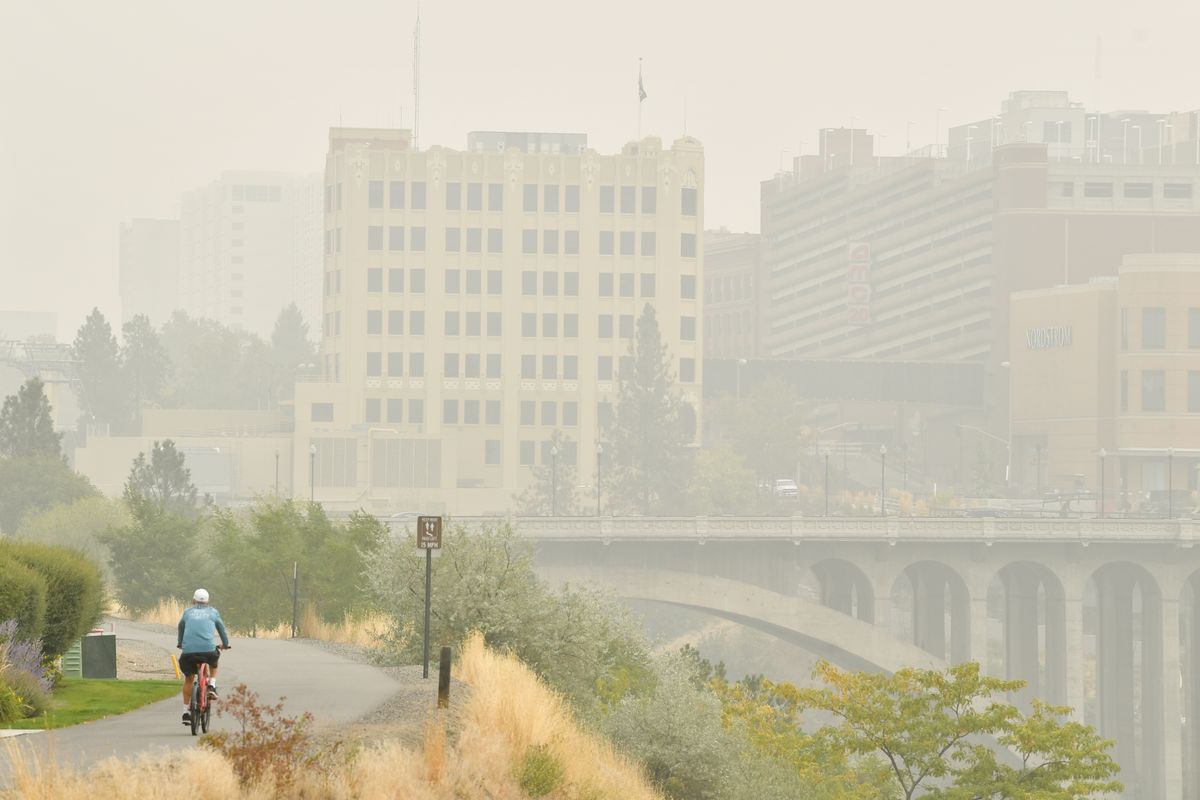Smoke gets in your eyes: Tips to ease irritation

Calls to Spokane optometrists began pouring in last weekend along with the smoke as patients sought remedies to relieve eye irritation caused by the worsening irritant in the air.
Those patients’ questions continued this week at Spokane Eye Clinic, said Alan Johnson, an optometrist for more than 23 years at the practice. Spokane Eye Clinic has 32 doctors and four locations, which all fielded the inquiries. Johnson said certain tips will help irritated eyes caused by smoke.
“I’m getting many flashbacks to a couple summers ago, and we had about two years in a row when we had a tough go with fires, and that was my first introduction to all the symptoms that can be present with the eyes that are out in that stuff,” he said.
“Back then, and as we are starting to get the calls today, we’re having a large uptick in the number of folks with burning, red, irritated eyes.”
For his patients and others in Spokane, Johnson has several ideas to care for eyes and protect them from what’s in the air.
Of course, it starts with staying indoors as much as possible, he said, and using recirculated air settings in the car and for home air conditioning. It’s also always a good idea to use good hygiene and avoid touching your eyes.
Other tips include:
• Use lubricating eye drops. Johnson said it’s important to look carefully at a label to ensure a product is designed for lubricating and moisturizing the eyes. “Preferably preservative free,” he added. “It’s almost bewildering when you go to a pharmacy and look at all potential eye drops that one could put in the eyes.”
• Consider wearing glasses instead of contacts.
“If one is a contact lens wearer, unfortunately the contact lens potentially can bind particulate matter and extend the duration of symptoms,” he said.
“So, if possible, if you need to be outdoors and are a contact lens wearer, we would recommend not wearing the contact lens but rather wear your glasses so you don’t have that contact lens binding and collecting more of the particulate matter.”
• Take more frequent digital breaks. Now, with more people working from home and students doing virtual learning, this is a rising issue. “It’s just more digital eye strain from being on devices; this smoke will only exacerbate that,” Johnson said.
He encourages people to follow the 20/20/20 rule. “Every 20 minutes, take at least 20 seconds to look 20 feet away.”
“Many members of our community are already battling symptoms from digital eye strain, so I worry about that problem in tandem with the irritation from smoke. Make sure you are taking a break from your screens.”
• Use a cool or warm compress depending on what condition is affecting your eyes. A cool compress held over closed eyelids will calm down inflammation and get you past that irritation from smoke, Johnson said.
“If your eyes are really aggravated from the smoke because you’ve been outdoors – and your eyes are red, inflamed and feel uncomfortable, often it feels good to take a cool compress and put it on your closed eyelids,” he said.
But if you’re experiencing dry eyes, a warm compress is better to help the oil glands in eyelids flow better. Try either remedy with a moist washcloth placed over closed eyelids for 10 minutes. For the warm compress, test the heat of the washcloth on the skin to ensure the washcloth isn’t too hot.
“Cool helps calm down the inflammation. Dry eyes sufferers can benefit from a warm compress. Easy and very affordable.”
While answering questions about smoke irritation, Johnson said he hopes people remain protective of their eyes.
“Just be good to your eyes just like one needs to be good to your lungs during these conditions.”